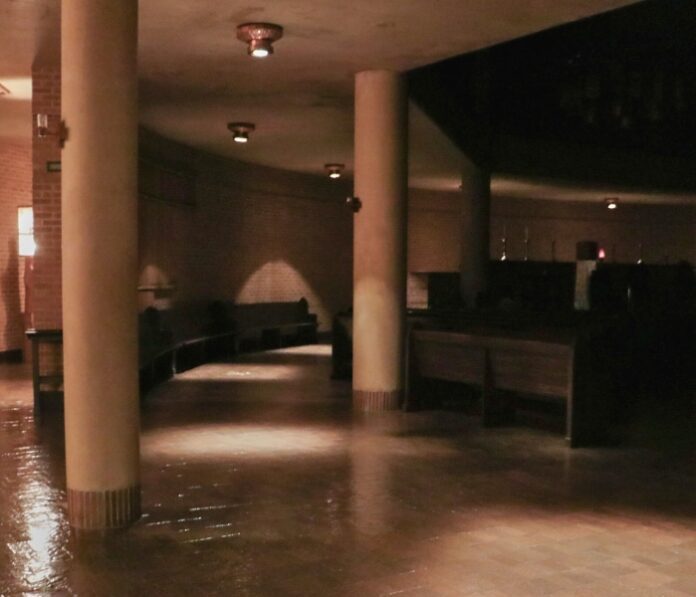
Disclaimer: All articles published within the Commentary Section are the opinions of the respective authors and do not necessarily reflect the opinions of The Cor Chronicle
In May 2024, Bishop James Conely of the Diocese of Lincoln, Nebraska published a pastoral letter touching on the topic of mental health in the Catholic Church. He drew from his own experiences during the COVID-19 lockdown.
After COVID, the rise in mental health awareness has dramatically increased. Bishop Conely’s letter, available on the Diocese of Lincoln’s website, is an attempt to highlight the ways that the Church and its teachings can help people through their mental illnesses.
The most common mental illness associated with the Church is a form of obsessive-compulsive disorder (OCD) called “scrupulosity.” In October and November of 2023, the Cor Chronicle published two articles on this topic, both available on the Cor Chronicle’s website.
Commentary Editor Larisa Tuttle defined scrupulosity as “an excessive preoccupation with having sinned or committed a serious fault…[The person] is only able to lessen the anxiety through a compulsive response, such as asking for reassurance from another person that he has not sinned or immediate confession.”
Saints Thérèse of Lisieux and Oscar Romero suffered much from scrupulosity. In “The Story of a Soul,” St. Therese of Lisieux writes, “One must pass through this martyrdom to understand it well… It would be quite impossible for me to tell you what I suffered for nearly two years. All my thoughts and actions, even the simplest, were a source of trouble and anguish to me.”
St. Thérèse also struggled with separation anxiety in her childhood, as well as suicidal thoughts during her battle with tuberculosis..
St. Oscar Romero, who lived from 1917-1980, was actually one of the only saints to ever be formally diagnosed with a mental disorder. He received an OCD diagnosis when he was 49 and well into his vocation as a priest. Romero underwent long-term therapy in order to manage his symptoms.
‘
Bishop Conely and St. Oscar Romero’s stories are very similar. Both felt overwhelmed by the pressure of religion and held their own lives under too harsh a standard, to the point that their mental state deteriorated and they needed to seek therapy.
Although they did not suffer from mental illness, many saints experienced profound loneliness or a feeling of disconnection from God.
Saint Mother Teresa of Calcutta struggled extensively with this loneliness. In her words,“There is nothing but emptiness & darkness…how painful is this unknown pain…So many unanswered questions live within me – I am afraid to uncover them – because of the blasphemy – If there be God, – please forgive me.”
In this sea of darkness and confusion however, shines a light of hope: the story of St. Dymphna, the patron saint of mental health and victims of sexual abuse. Dymphna’s father, Damon, fell into a deep depression after his wife died and, in a state of insanity, tried to marry his daughter in her stead. When Dymphna refused, her father killed her. However, Dymphna forgave her father before her death. She is credited with the miraculous curing of many people with mental illness.
Discrimination that provokes mental illness is also common in the Church. There is a difference between respectful evangelization and outright rejection of people. Groups of people who differ from the Catholic Church (for example, someone from the LBGT community or another religious creed) are usually treated with disrespect, which might cause these people to think negatively or incorrectly of Catholicism.
On the discrimination against people with mental health problems, St. Pope John Paul II says, “Whoever suffers from mental illness always bears God’s image and likeness in himself… he always has the inalienable right not only to be considered as an image of God and therefore as a person, but also to be treated as such.”
In the end, it is the confusion and misunderstanding of true Catholic doctrine, coupled with one’s preexisting mental issues, that cause many people to develop the mental struggles discussed above. Furthermore, the incorrect actions of people affiliated with the Faith can cause others to associate Catholicism with negativity.
Do not be the cause of someone’s problem or aggravate their struggles with insensitivity or hatred. The true Christian action can be summed up in the words of Jesus Himself, “In everything, do to others what you would have them do to you.”
Johannes Carrillo is a sophomore English and drama major.
